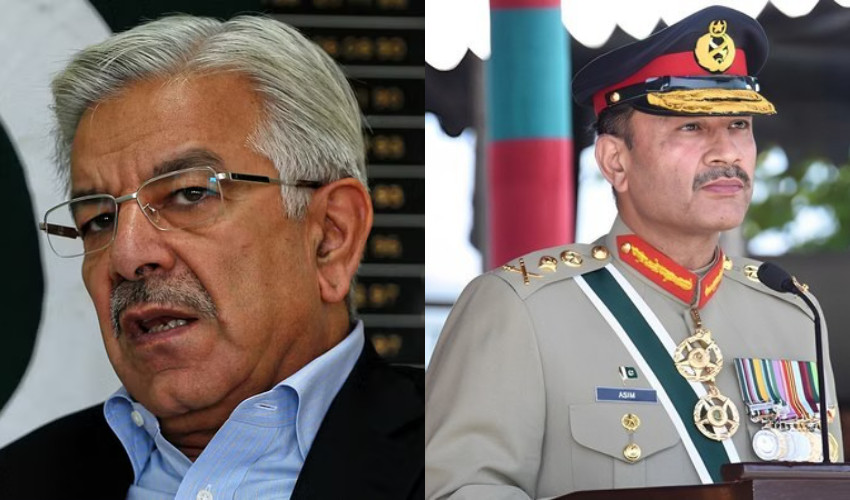Khawaja Asif
Defence Minister Khawaja Asif announced on Monday that General Syed Asim Munir will continue serving as the army chief until 2028, following the recent approval of legislative bills that extend the terms of service chiefs.
This statement was made during an appearance on TV, where Asif emphasized that this decision marks a significant shift in the military leadership framework in Pakistan.
Asif noted that there have been precedents in the past where army chiefs received extensions, but with the passage of this new legislation, the chapter concerning term extensions for military leaders has now been officially closed.
He expressed optimism about the implications of this decision, stating that democratic governments in Pakistan would benefit in the future from the legislation that formalizes the tenure of service chiefs.
In a parallel development, both the National Assembly (NA) and the Senate passed the bills aimed at extending the terms of the services chiefs.
This legislative action occurred amidst a backdrop of heightened tensions, particularly during the NA session, which was presided over by Speaker Sardar Ayaz Sadiq.
The atmosphere in the assembly escalated to a physical altercation between members of the Pakistan Tehreek-e-Insaf (PTI) party and the ruling party, reflecting the contentious political climate surrounding the legislative process.
The approval of these bills comes at a time when the government is navigating through various political challenges, and the decision to secure the tenure of General Munir is seen as a stabilizing move for the military institution.
By extending the term of the army chief, the government aims to ensure continuity and coherence within the armed forces during a critical period for the nation.
Khawaja Asif’s remarks not only highlight the significance of this decision in the context of military governance but also suggest a strategic approach by the current administration to reinforce the structure of military leadership.
As political dynamics continue to evolve in Pakistan, the long-term implications of this legislative approval will likely play a pivotal role in shaping the relationship between civilian governance and military authority in the years to come.


